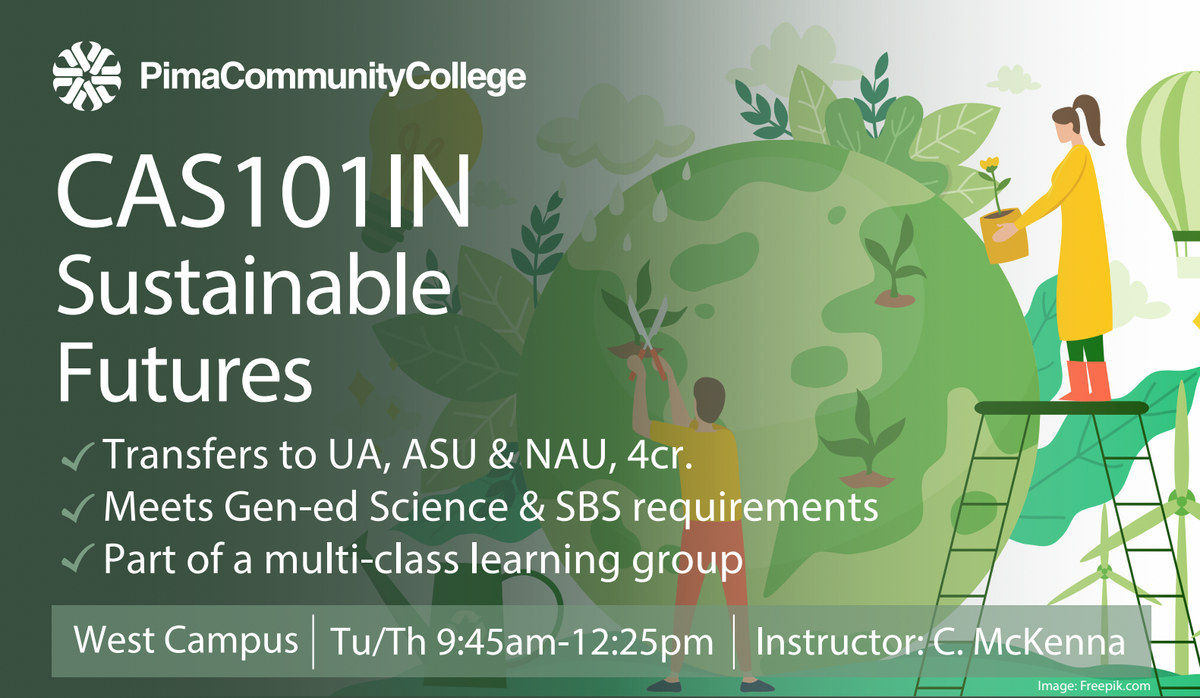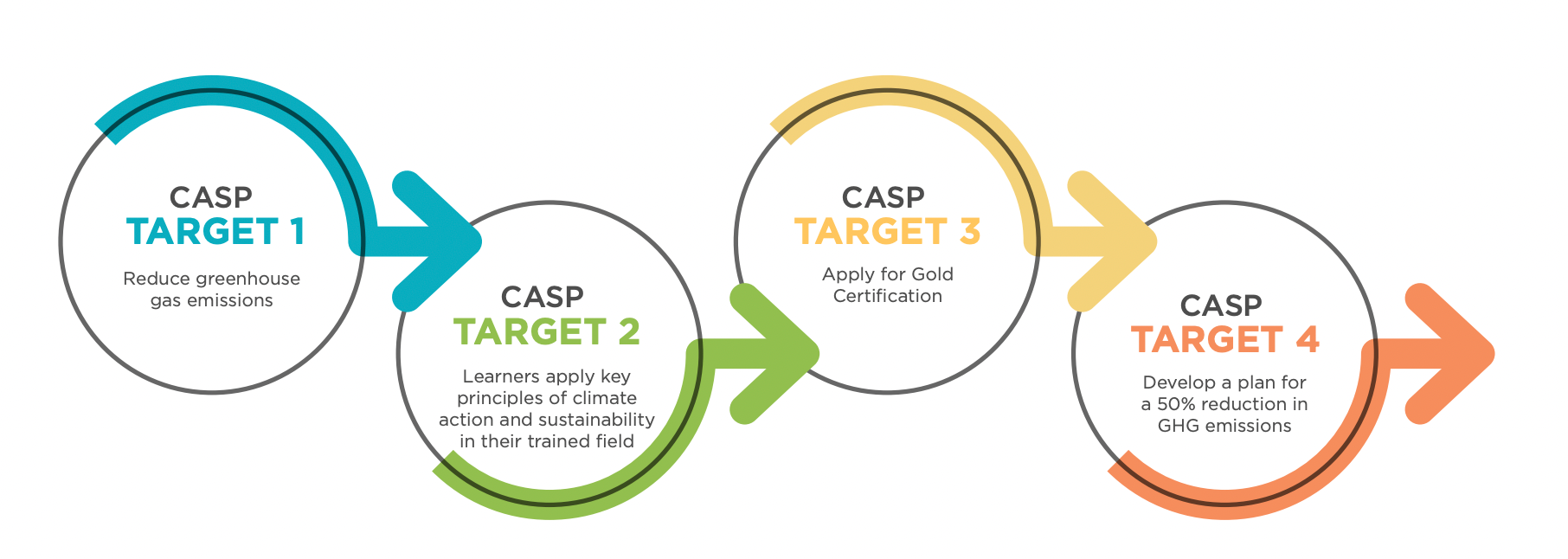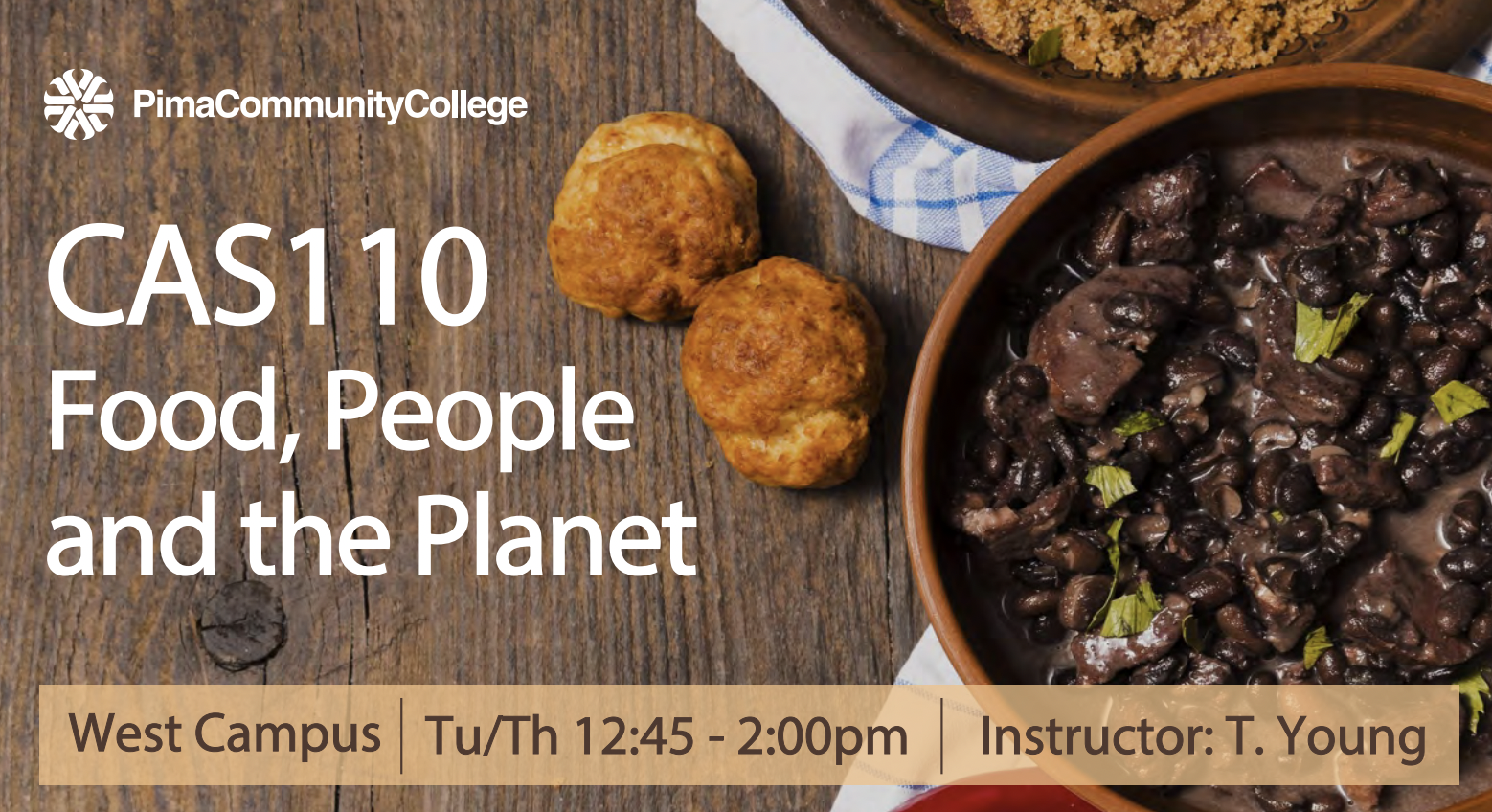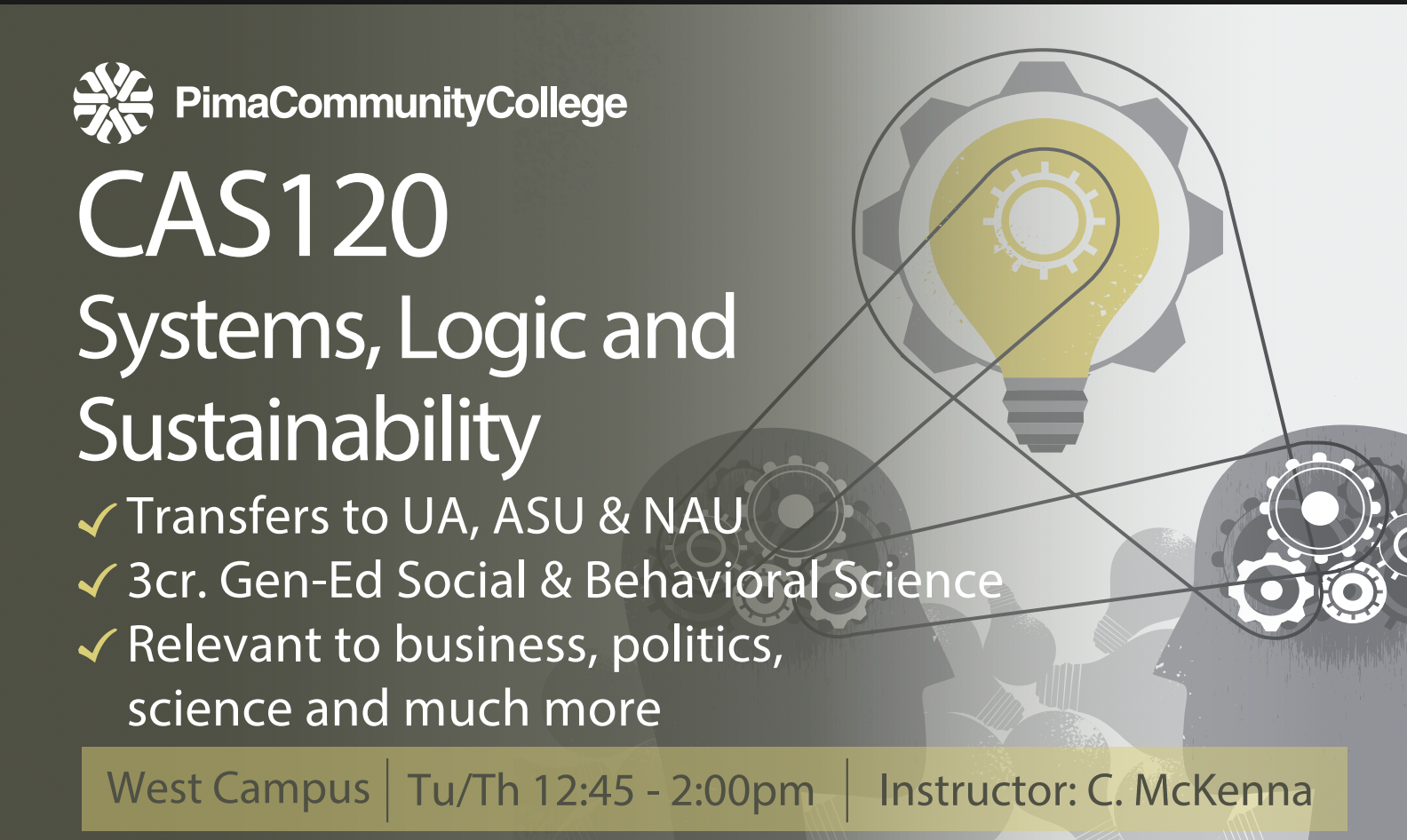Pima College expanding recently launched climate education curriculum
The program was created through the college’s Climate Action and Sustainability Plan, which was implemented in 2022.

Pima Community College is expanding its climate education curriculum in the spring, offering students a suite of classes that they can apply to a variety of majors.
Pima’s Climate Action and Sustainability program is housed in the science department and was officially launched earlier this year. In January, it will expand to seven classes, five of which were offered for the first time this semester.
None of the courses have prerequisites and they all count towards students’ general education requirements, with the idea being to let students apply the concepts into their field of choice, said Crystal McKenna, head of the school’s Earth, Systems and Society department.
“We’re not trying to crank out climate activists and sustainability professionals, but we feel it’s important that the concepts are a part of students’ future career,” she told Tucson Spotlight.
McKenna was hired last year to oversee the program, which was created through the college’s Climate Action and Sustainability Plan.
The plan was passed in 2022 and prioritizes:
- Energy reduction
- Climate change and sustainability curriculum
- Engagement and education
- Inventory greenhouse gas emissions
- College-wide infusion of sustainability

The inaugural course was an online climate change class that was first offered in the summer of 2023, right before McKenna came on board in August.
The course was full with a waitlist of students hoping to get in, which McKenna knew right away was a good sign.
Her first task was to get the curriculum approved and added to the course catalog, which took some time.
But the wait was worth it. When registration for the new classes opened in the spring, the sustainable futures course filled up quickly and netted a waitlist of its own.
Another course, food, people and the planet, was 80% full by the start of the semester, with the other courses drawing similar interest.
The full offering of courses includes environmental explorations; sustainable cities and societies; systems, logic and sustainability and climate and sustainability in the community, which is a project-based course.
The plan has been to launch the classes in-person first, then online by their second semester, which is the preferred format for many of Pima’s students and for enrollment purposes.
“By the time we pick a campus and a day and time (for in-person courses,) we’ve narrowed down the audience so much,” McKenna said. “Online classes will reach a much broader audience.”
McKenna has been teaching most of the courses herself, but she’s been able to bring in instructors from other departments, including biology and sociology and is slowly building on her pool of available teachers.
“They’ve heard musings and wanted to get on board,” she said.

The courses “straddle multiple lines” in terms of how they transfer to four-year universities, with all of the classes counting towards students’ general education requirements.
“It was important to design these courses for literally everyone,” McKenna said. “We want to engage all types of learners in these concepts.”
McKenna came to Pima by way of Central Arizona College, where she’d been teaching environmental science and biology for a decade.
“I was really trying to build a sustainability program there, but I was getting quite a bit of pushback,” she said. “Pinal County is not the most forward-thinking on those levels, so it was tough.”
McKenna earned her PhD through Prescott College’s sustainability education program while working for CAC, which she said lit a fire under her to branch out from environmental science and try to understand the bigger picture connections of all these things.
“Especially the social justice aspect of all these issues,” she said. “(That) was where I got the most pushback in Pinal.”
McKenna didn’t have any plans to leave her job, but a colleague from her PhD program saw the announcement about the job at Pima and sent it her way.
“They said, ‘I think they’re looking for you,’” McKenna said.
And after reading the job description, she had to agree.
“When it came down to it was too great of an opportunity to turn down,” she said.
She hit the ground running and has been thrilled with the students’ response.

Many students come to Pima to get their general education classes out of the way before they embark on a specific area of study at the University of Arizona, so one of the school’s initiatives is to offer “general education courses with a theme.” And while Pima doesn’t offer minors, these types of suites could potentially work out in that way.
“Students can use this as a launching pad for those higher-level major courses,” McKenna said.
And with Tucson Unified School District’s recent passage of its Climate Action Resolution, McKenna and her colleague Phil Berry in Pima College’s Office of Sustainability have been in talks with the district to try to help with the rollout of the plan.
“As they implement the education component with the CAR they just passed, we’re hoping we can create a nice synergistic involvement there with dual-enrollment classes and more,” she said.
The program’s systems, logic and sustainability will be offered for the first time in the spring, with McKenna saying she’s excited to bring this type of systems thinking course to Pima.
“It’s not being taught to my knowledge anywhere else at the community college level,” she said.
The course is a social behavioral class that exposes students to the concept that we are all interacting within larger systems.
McKenna said the course has turned her into a bit of Pollyanna, saying that it has helped her to find optimism in a future that can sometimes seem hopeless.
“If we can teach all our students to effectively apply systems thinking in their personal and professional lives, I’m thinking a lot of these big, wicked problems start to evaporate,” she said.
Caitlin Schmidt is Editor and Publisher of Tucson Spotlight. Contact her at caitlin@tucsonspotlight.org.
Tucson Spotlight is a community-based newsroom that provides paid opportunities for students and rising journalists in Southern Arizona. Please support our work with a paid subscription.



